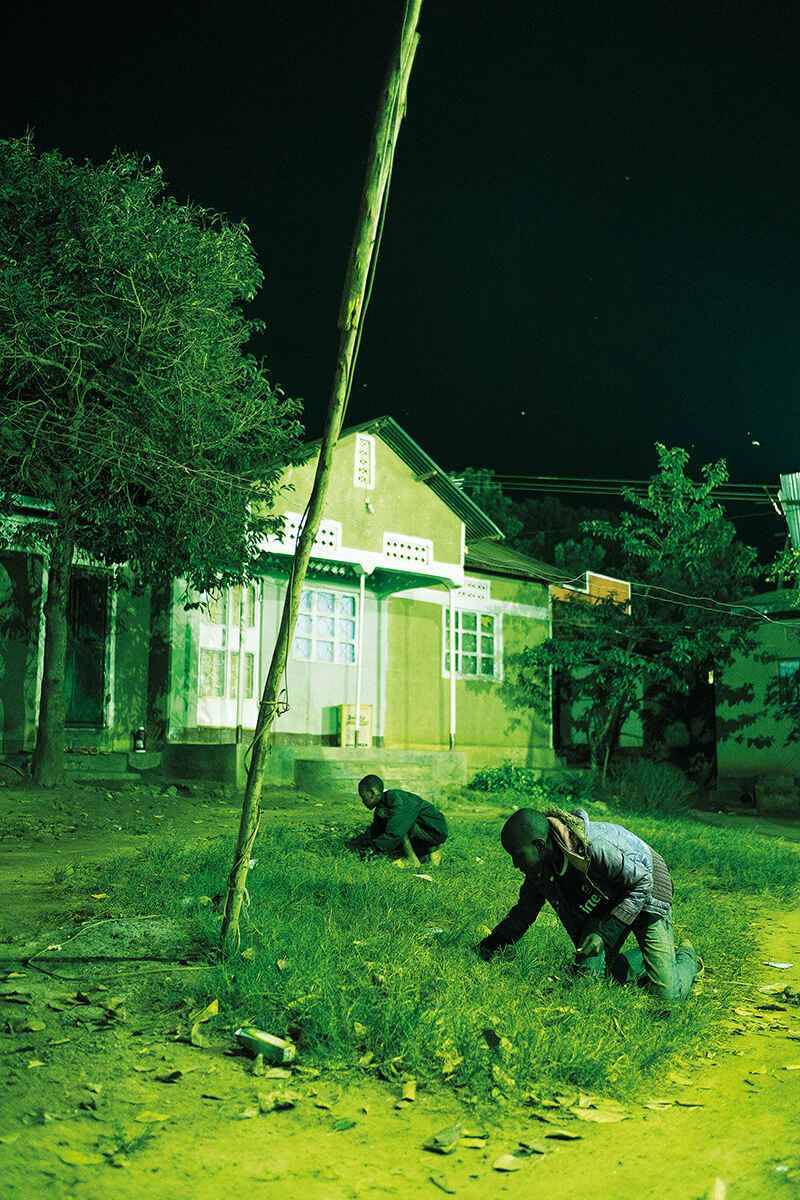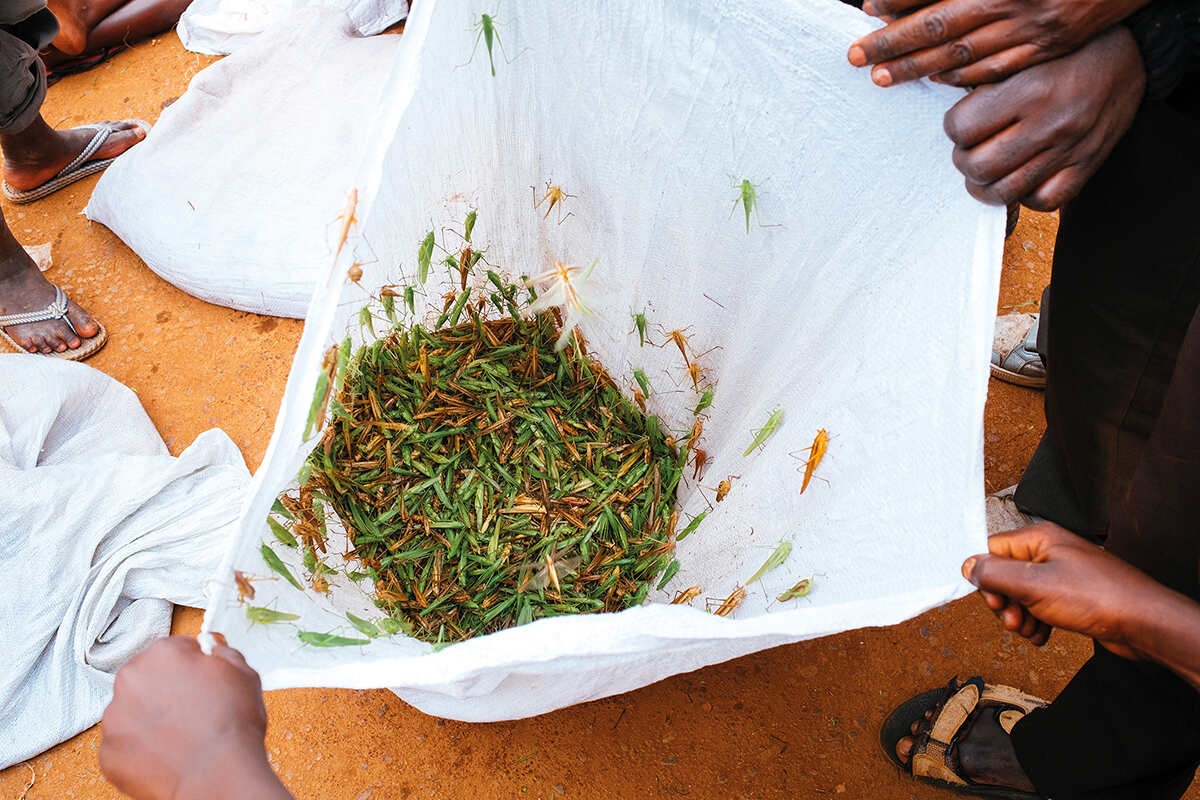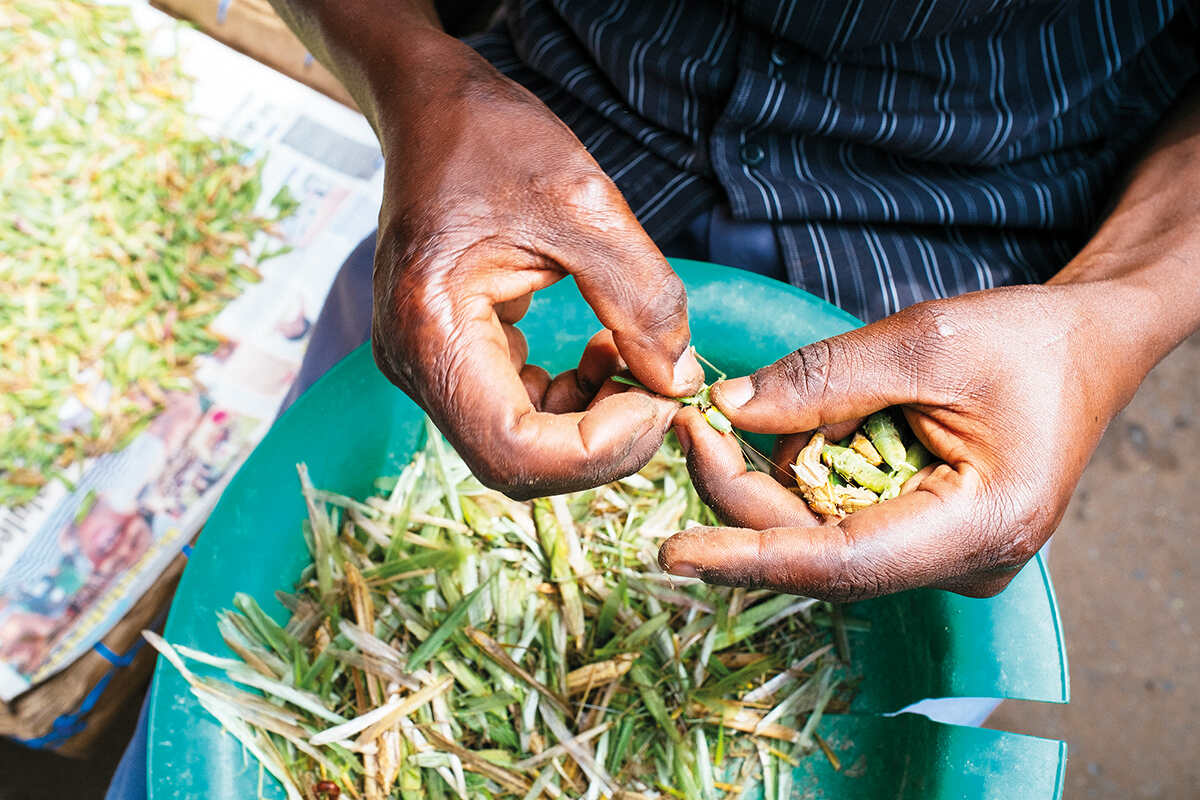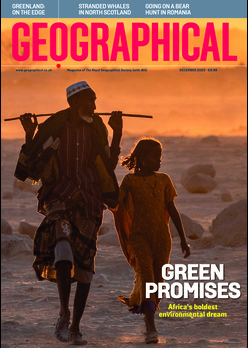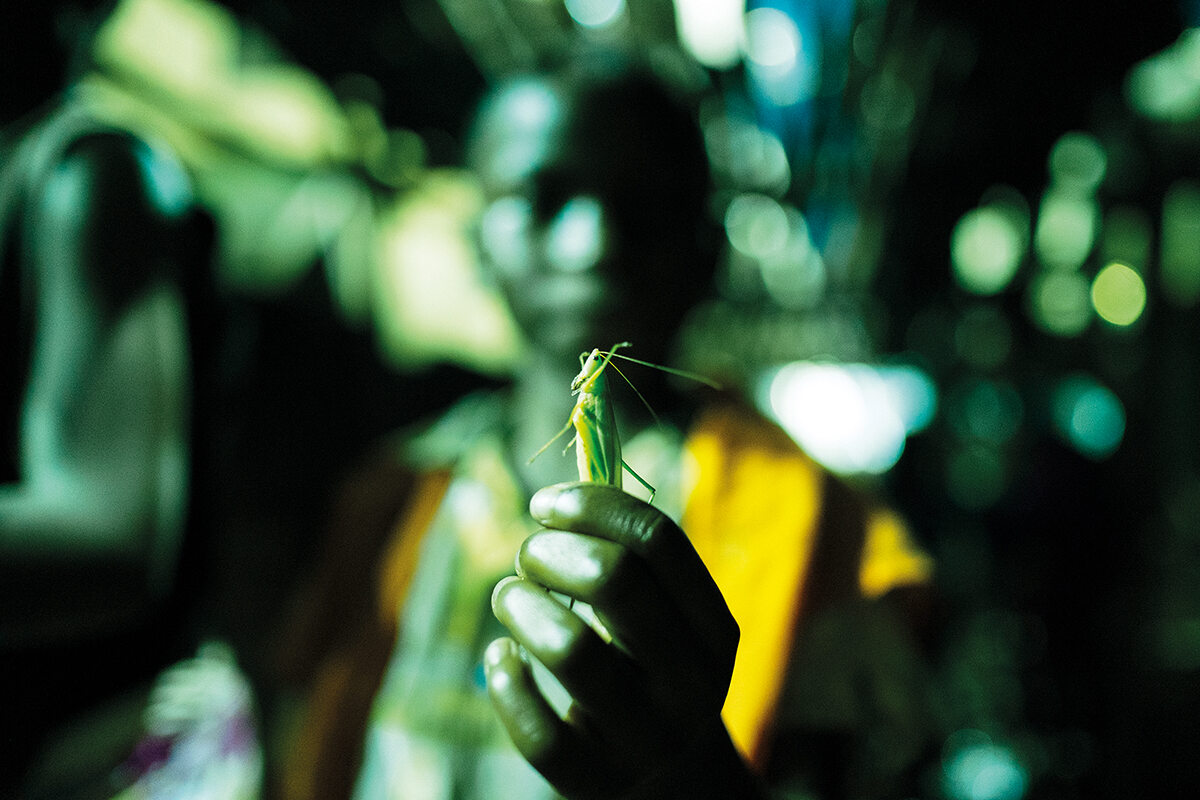
Photographer Eugénie Baccot explores the green-hued seasonal harvest of edible grasshoppers in Kampala, Uganda which provide much-needed protein and income
In spring and autumn, green clouds appear in the skies over Kampala, the capital of Uganda, heralding the arrival of the nsenene – an edible grasshopper. Caught and consumed as a traditional snack, the large insects provide much-needed protein and sustenance for the city’s poor as well as an income for those who take part in the trade.
